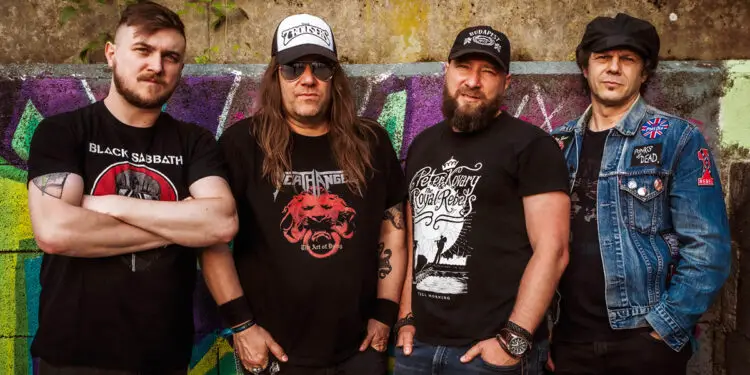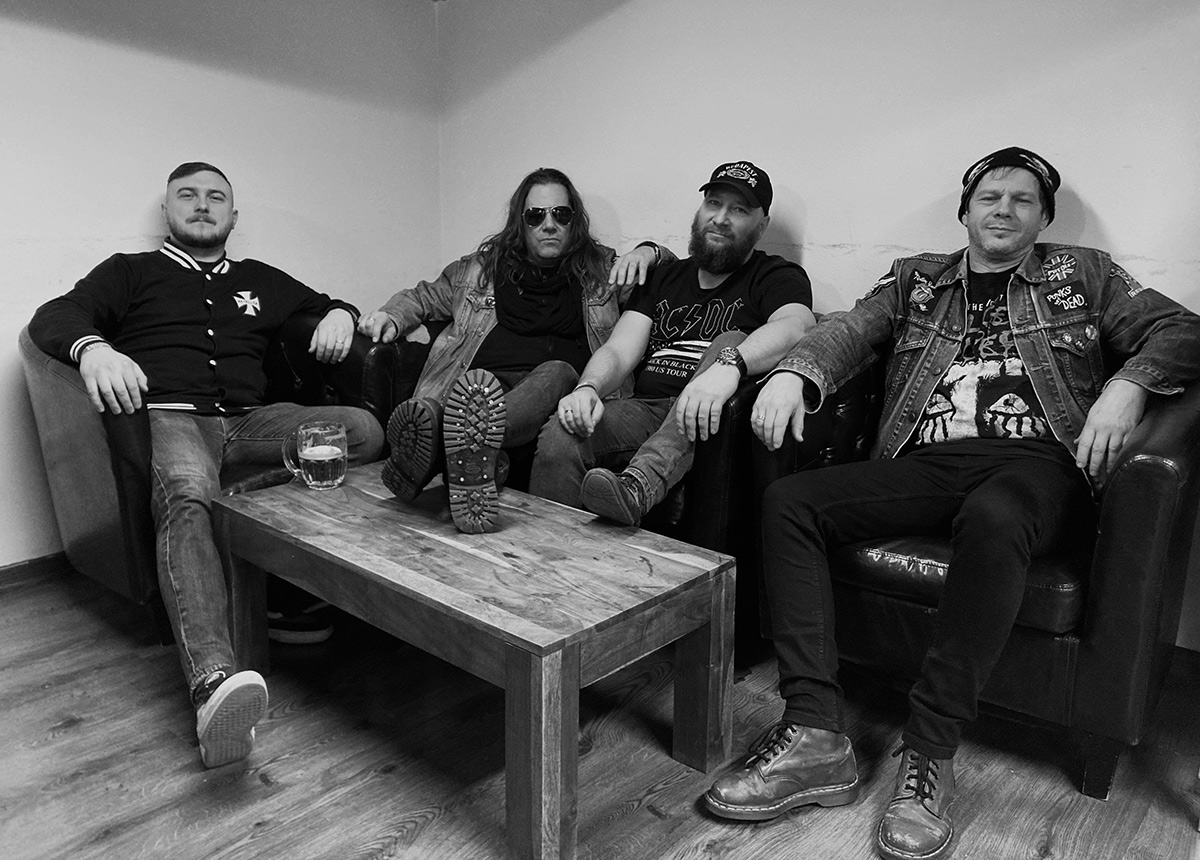A Q&A with The Trousers

Raw rock ‘n’ roll with dark romantic energy…
What’s the title of your latest release, and what does it mean to you?
‘Second Hand Suicide’ – it’s coming from a deep emotional experience, a kind of dark romantic idea of the interrelation between love and death in our lives. It’s a very good example of our aspirations to mix heavy, raw music with complex emotions. It contains anger, pain and sadness.
What was the hardest part about putting this release together, and why?
Actually, thank God, I cannot recall any complications. I wrote the song and the lyrics, and we recorded it the way we usually do. This time we did not produce a video for it, just an animated album cover, because it would have taken weeks to finish. But according to our original plans we wanted to release it at the beginning of May. I think that videos are not as important nowadays as they were a few decades ago. But you have to provide something not static for YouTube, like a visualiser.
Who produced the release – what did they bring to it? If you produced it yourselves what do you enjoy most about producing your own material?
Our producer and studio man, Csészi (pronounced: Chase E) was our drummer for eleven years. We have done all our albums together with him. We know each other very well, so the process is never problematic. This time we applied a different method for recording guitars, and the result was awesome. Csészi is constantly developing his studio technique, and thanks to this, our recordings sound better and better all the time.
What do you want the listener to take away from listening to your music?
Power and emotions. I think integrating heavy music with song structure, vocal themes that are full of emotions results in a complex musical experience for the listener, which requires intensive inner work to process – and that’s why it changes the listener’s inner world and personality. It’s a long-lasting effect. I think that is the secret of Black Sabbath or Alice in Chains – that’s why their music is influential even after decades.
How does a track normally come together? Can you tell us something about the process?
We have well-established methods. I write the song alone on acoustic guitar with the riffs and the chord progression, then the lyrics, then we put the song together in the rehearsal room. Following this, we record it in the same studio we’ve used since 2010. The songs have several ingredients, including Hammond organ, female backing vocals, two guitars, bass and drums – it’s not easy to get them all arranged. But if the song itself works, all we have to do is actualise the idea.
What band/artists have influenced you the most since you started this project, and why?
In 2005, when we started, The White Stripes or The Hives – that’s why our name is similar. Around 2010, The Hellacopters were our main influence because they showed us how to integrate different styles – garage rock, hard rock, soul, punk, blues – into something unified and unique. Then, every 2–3 years, new influences come in, like Monster Magnet, or Thin Lizzy and Cheap Trick, or Alice in Chains, which means that our music is becoming more diverse and complex, but still the same rock ‘n’ roll.

What countries would you like to tour? Are there any standout venues you’d like to play in?
Maybe Scandinavia. We’d be happy to play at some real rock ‘n’ roll festivals like Bearstone in Croatia or Mighty Sounds in Czech Republic.
If you could pick one track for our readers to listen to in order to get a taste of your music, what would you pick, and why?
I would pick ‘Second Hand Suicide’, because maybe it’s one of the best songs we have ever put together and it has got a great sound. We recorded the guitars differently than in previous years, and it’s even more dynamic.
What ambitions do you have for the band/your career?
Thanks to our collaborations with different PR agencies, our songs can be heard all over the world on underground rock stations from Europe to South America, and the feedback is always heart-warming. When ‘Second Hand Suicide’ came out in May, some of the authors called it an “instant rock classic”. A musician can’t ask for more than that in the 21st century. We love to perform, and we would be happy to play outside of our well-known Central European area.
Finally, as you leave the stage, what are your parting words?
Thank you very much for being here with us – see you soon.
Find out more about The Trousers at thetrousersband.com







